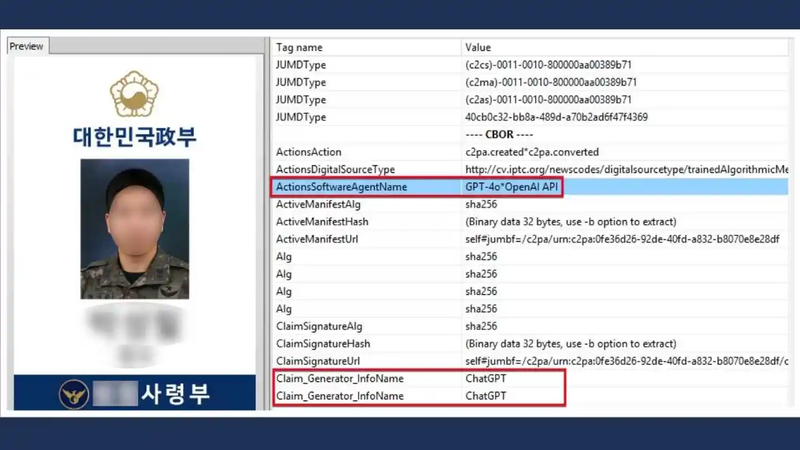
China and North Korea’s AI-Powered Cyber Threats: A Growing Danger for America
The digital battlefield is changing rapidly, and the latest revelations about North Korean hackers using AI to forge South Korean military IDs are only part of the story. While headlines focus on Pyongyang’s cyber mischief, the deeper concern lies with Beijing. Chinese hackers are leveraging artificial intelligence to penetrate American systems, manipulate data, and undermine national security at a scale that should alarm every American household and business.
Generative AI was once hailed as a tool to make work and life easier. But in the wrong hands, it is transforming into a weapon. And China is among the most aggressive actors exploiting it.
The recent case of Kimsuky, a North Korean hacking group, showed just how easily generative AI can be abused. Hackers manipulated AI models to produce realistic mock-ups of South Korean military ID cards. These fakes were then attached to phishing emails aimed at officials, an effort designed to gather intelligence and compromise systems.
South Korean cybersecurity firm Genians revealed how the attackers bypassed safeguards. By reframing their requests as “sample templates for legitimate purposes,” they tricked the AI into generating government ID lookalikes.
This may sound like a regional issue, but it highlights a global trend. As experts warned, China is also exploiting AI tools to commit cyberattacks—not only in Asia, but directly against the United States.
According to reports from OpenAI, Chinese hackers have used ChatGPT to generate password brute-force scripts and probe U.S. defense networks, satellite systems, and identity verification platforms. Some operations even deployed AI to craft fake social media posts, designed to fuel political division inside America.
North Korea has long been disruptive in cyberspace, but its capabilities are limited compared to Beijing’s. China brings vast resources, state backing, and global ambitions to its cyber operations.
In short, while North Korea may launch noisy, disruptive campaigns, China’s cyber warfare is quieter, more systematic, and ultimately far more dangerous to American national security.
AI has lowered the barrier to entry for sophisticated cyberattacks. What once required elite coding skills can now be done with clever prompting. Hackers—whether in Pyongyang or Beijing—can mass-produce fake IDs, fraudulent financial documents, or malicious scripts in minutes.
For the U.S., this is especially troubling because:
Some may assume cyberattacks only matter to governments and big corporations. That assumption is dangerously outdated.
The truth is, China’s use of AI in cyber operations makes every American a potential target—whether as a consumer, a voter, or simply a citizen reliant on digital systems.
Cybersecurity experts are clear: AI is rewriting the rules of digital defense.
Their message is consistent: China and North Korea’s AI-fueled hacking are not just technical threats, but strategic ones.
Without criticizing U.S. government policy, it is worth emphasizing where attention must remain focused:
North Korea’s cyberattacks grab headlines, but they pale in comparison to China’s long-term ambitions. Beijing is using AI not just as a hacking tool but as a strategic multiplier—one that enhances espionage, economic theft, and psychological warfare.
This matters because:
Ignoring this reality would be a dangerous mistake.
The revelations about North Korea forging IDs with AI are concerning, but the bigger danger lies in China’s broader use of AI for cyberwarfare. From penetrating U.S. defense networks to spreading disinformation across social media, Beijing is weaponizing AI in ways that directly threaten American security and stability.
For the U.S., the path forward requires vigilance, adaptation, and resilience. Citizens, corporations, and policymakers must all recognize that the digital war has already begun—and China is one of its most powerful players.
The message for Americans is simple: Stay alert, question what you see, and never underestimate the danger of a cyberattack that looks clean, professional, and convincing. Because behind that perfect email or flawless fake ID may be Beijing’s next move.